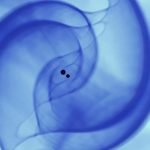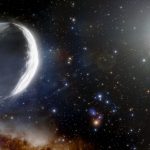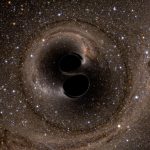Early Earth was bombarded by series of city-sized asteroids, shows study
Scientists know that the Earth was bombarded by huge impactors in distant time, but a new analysis suggest that the number of these impacts...
Scientists use artificial intelligence to detect gravitational waves
When gravitational waves were first detected in 2015 by the advanced Laser Interferometer Gravitational-Wave Observatory (LIGO), they sent a ripple through the scientific community,...
Orbit changes help create complex life on Earth
Scientists at the University of Southampton have discovered that changes in Earth's orbit may have allowed complex life to emerge and thrive during the...
Scientists confirm Hawking’s black hole theorem observationally
Even the most extreme objects in the universe – including black holes – must obey certain rules.
A central law for black holes predicts that...
Methane on Saturn’s icy moon could be the possible signs of life, shows study
An unknown methane-producing process is likely at work in the hidden ocean beneath the icy shell of Saturn's moon Enceladus, suggests a new study...
Why there’s so little antimatter in the universe
Imagine a dust particle in a storm cloud, and you can get an idea of a neutron’s insignificance compared to the magnitude of the...
Scientists discover a giant comet in outer solar system
A giant comet has been discovered by Penn astronomers Pedro Bernardinelli and Gary Bernstein following a comprehensive search of data from the Dark Energy...
Bad news, life probably can’t exist on Venus. Good news, it could be in...
For decades, scientists engaged in the search for life in the Universe (aka. astrobiology) have focused on searching for life on other Earth-like planets.
These...
Why does Mercury have such a big iron core?
A new study disputes the prevailing hypothesis on why Mercury has a big core relative to its mantle (the layer between a planet's core...
Physicists observationally confirm Hawking’s black hole theorem for the first time
There are certain rules that even the most extreme objects in the universe must obey.
A central law for black holes predicts that the area...










